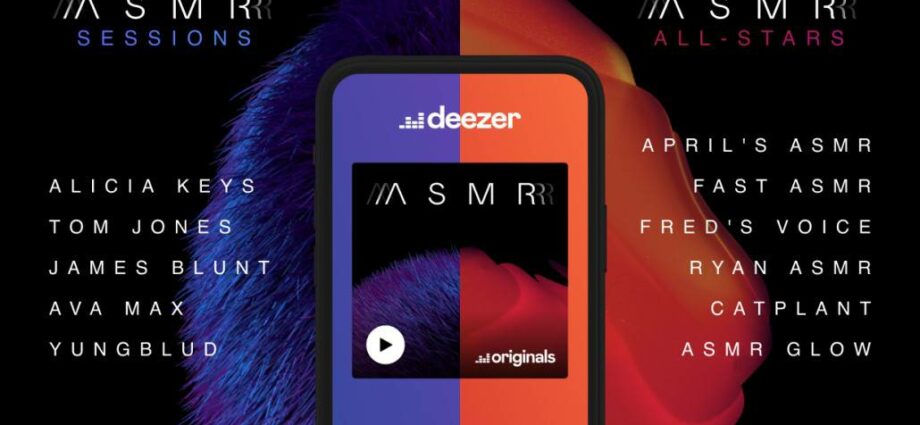Contents
ASMR: nearly a third of the French use it to fight against stress or sleep disorders
56% of people in the world are followers of this kind of content. It can be whispers, tapping, crackling, noises of pages turning or cutting of vegetables. A recent phenomenon exploited on the internet, the French music platform Deezer interviewed many people as part of an exclusive musical project « ASMR Sessions ».
The concept is wacky, funny, calming or embarrassing to some. ASMR (Autonomous Sensory Meridian Response, which can be translated by “Autonomous response of sensory meridians”) has enjoyed tremendous success in recent years.
The famous French music platform Deezer surveyed with the help of the Censuswide institute, more than 12.000 people, from several countries (Brazil, Germany, France, Great Britain, United States and Mexico) to determine the feelings of their consumers faced with this practice.
Less stress, relaxation and ease of falling asleep for those who love …
In France, ASMR aficionados like this kind of content for several reasons such as: relaxation (33%), stress reduction (30%). More than a quarter (30%) listen to or watch ASMR to help them fall asleep. Dr. Craig Richard, founder of ASMR University.com, explains in a statement that “Feeling relaxed upon hearing someone’s light breathing or whispering means that their virtual presence brings you comfort. ASMR content can tap into our desire for secure, close and personal connections. ”
… Irritation, embarrassment or even boredom for 19% of French people surveyed!
However, the consensus around the benefits of ASMR does not concern all consumers of the music platform. Deezer reveals that 36% of those polled have no physical or emotional reaction to listening to auditory stimuli. 11% of them even encountered embarrassment and boredom or annoyance at 19%. Of those surveyed, 7% consider that they hate ASMR, while 36% feel “ neutral “. Chewing noises (for 56%) and mouth noises (43%) were voted the most unpleasant sounds by respondents.
Finally, the study reveals that young people and in particular Generation Z will have an easier time with this kind of content unlike baby boomers (people born between 1945 and 1965). “The data confirms that people can have very different preferences when it comes to ASMR content. The ASMR triggers and responses are similar to those of oxytocin, often referred to as the love hormone. These differences can be explained by genetics, which influence responses to oxytocin. Other factors, such as age, may have an impact and it is also possible that a positive response to ASMR may fade with age ”, explains Dr. Craig Richard.










